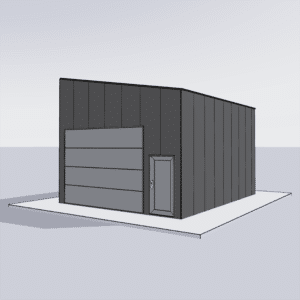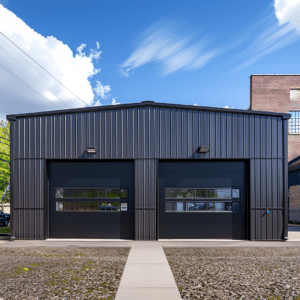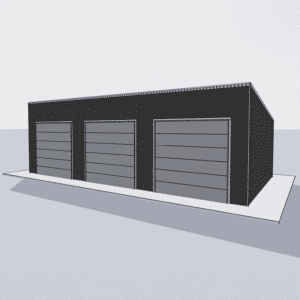Buying a home is a thrilling yet daunting experience. You’re on the brink of entering a new chapter in life—maybe it’s your first home purchase, or perhaps you’re upgrading to accommodate a growing family. The scent of fresh paint, the spark of new beginnings, and welcome dreams are in full view. But wait—before you sign that dotted line, there’s a vital process that must not be overlooked: the home inspection. Imagine a home inspection for buyers as your crystal ball, revealing future surprises that could turn sweet dreams into restless nights.
To navigate these waters with ease and confidence, it’s essential to be equipped with a comprehensive understanding of how to conduct a home inspection before buying your new home. This is the cornerstone to ensuring your upcoming investment is safe, sound, and secure.
Why is a Home Inspection Important?
A home isn’t merely bricks and mortar; it’s a sanctuary—a keeper of memories, a space that should promise warmth and safety. But sometimes, the outward appearance of a house can be deceiving. What lurks beneath that polished surface? The importance of a home inspection for buyers cannot be over-emphasized. It’s your opportunity to uncover potential pitfalls.
Home inspections reveal structural issues, hidden damages, and maintenance problems that might demand immediate attention. Envision walking into your dream home to later find that the roof leaks like a sieve, or the plumbing has more twists and turns than a mystery novel. A home inspection becomes your safety net to avoid such nightmarish scenarios.
When to Schedule a Home Inspection
Timing is everything, as they say. Conducting a home inspection too early might result in unnecessary evaluations, whereas an overly delayed inspection could lead to the binding contract with unforeseen repair costs. Therefore, it’s prudent to schedule an inspection after the purchase offer is accepted but before the sale closes. It’s a step akin to a chess move; strategic, purposeful, and aimed at checkmating potential issues.
DIY Home Inspection Tips
Engaging a home inspector is a valuable investment—your ticket to peace of mind. However, a preliminary DIY scan isn’t merely wishful thinking but an insightful precursor to the professional touch. Here’s how you can start the process even before a professional steps in:
Inspect the Structure
A house’s strength lies in its foundation, so it’s imperative to visually assess it. Check for cracks or uneven floors, which might signal structural shifts. Ask yourself, does the house stand sturdy, or does it whisper tales of lurking complications?
Evaluating Major Systems
Put on your detective hat as you scrutinize significant systems—plumbing, electrical, and HVAC. Do faucets leak incessantly? Is the electrical wiring modern and up to the task, or does it illicitly mimic octopus arms with extensions everywhere? Is the HVAC system orchestrating symphonies of comfort, or croaking confused concertos?
Focus on the Roof
Roof checks are crucial. Climb up safely or use binoculars to check for missing shingles or worn-out materials. A compromised roof spells trouble, much like a flimsy umbrella in a rainstorm. You wouldn’t venture out bare-headed, would you?
Engaging a Professional Home Inspector
After your personal investigation, turn to a professional. A seasoned home inspector possesses the expertise and technology to delve deeper—a magnifying glass that sees beyond. While you may have caught glimpses of issues, they dig them up and draft a detailed report.
Choosing the Right Inspector
Not all inspectors wear capes, but some sure act like superheroes. Recommendations from trusted sources usually land the job. An inspector with experience particularly in residential construction will usually provide a more insightful evaluation.

What to Expect During the Inspection
Understand the flow of the process. A checklist guides the inspection path—from exterior walls and windows, to wiring and watertightness. Shadow your inspector, ask questions, and gain newfound knowledge—a treasure trove of future home maintenance tips.
Understanding the Inspection Report
The report is your golden document—a revelation of house health. Scrutinize it carefully, and don’t hesitate to clarify doubts with the inspector. Imperfections offer bargaining chips, helping you in either seeking repairs before settlement or negotiating price adjustments.
What to Do After the Inspection
Once you have the inspection report in hand, it’s time to make informed decisions. It’s akin to navigating a crossroads—do you proceed with excitement, walk away cautiously, or renegotiate terms to suit your comfort levels?
Negotiating Repairs
If significant repairs loom, consider the art of negotiation. Develop a list of issues needing attention and approach the seller with them. Resolution can include repair completion prior to sale or a reduction in purchase price—a delicate bargain that could benefit both parties.
Your Building Team can guide you through the metal building systems in Ontario, showcasing their expertise. It is crucial to plan and ensure your home will stand the test of time. Don’t forget that construction can come with its own set of delays. Read more about how to effectively be dealing with construction delays.
Consider cross-referencing inspection results with property listings on Zillow to understand comparative market options. A widened lens often breeds more informed choices.
Conclusion
A home inspection for buyers is more than a procedural checklist; it’s a compass directing you towards a future grounded in assurance and contentment. By inspecting thoroughly, your dream home can become a haven—a sturdy metal fortress or charming residence without the weight of future surprises. Remember, your home is not just a present—it’s a promise for a secure, happy tomorrow. This inspection guide isn’t just advice—it’s your launchpad to confident homeownership.










